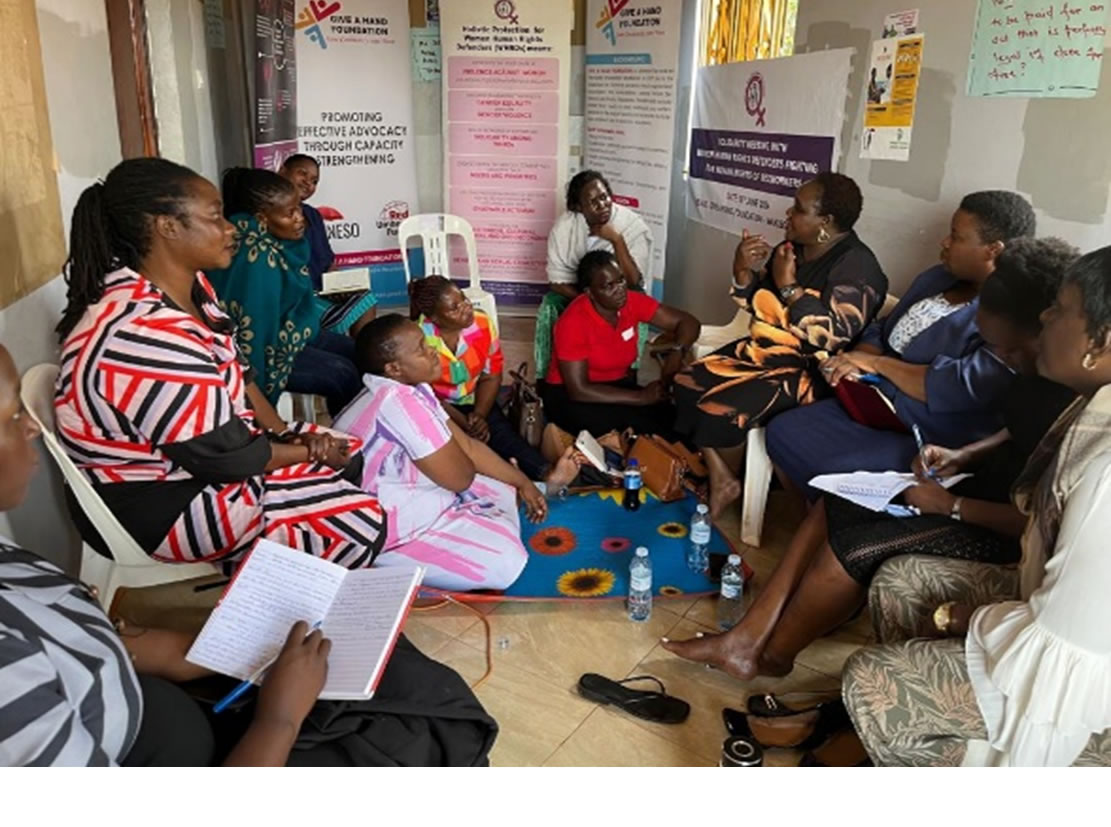The Women Human Rights Defenders Network Uganda (WHRDN-U) recently convened a consultative meeting with nine Women Human Rights Defenders (WHRDs) advocating for the rights of sex workers. The half-day session provided a safe space for defenders to share experiences, discuss the impact of Uganda’s Anti-Homosexuality Act, 2023, and develop strategies to protect themselves and their communities from increasing attacks and threats.
Key Highlights of the Meeting
- Welcome Remarks
– WHRDN-U leadership emphasized the importance of reporting violations to ensure timely protection and support. The network has committed to providing legal aid, relocation support, and capacity-building initiatives for WHRDs. - Updates on Activism Work
– WHRDs shared their ongoing efforts, such as legal support for detained sex workers, community-based human rights awareness, and providing educational support for children of sex workers.
– Participants also noted the importance of building working relationships with key government stakeholders, including the Uganda Human Rights Commission and the Equal Opportunities Commission. - Challenges and Violations Faced by SWRDs
– Physical Threats and Violence: Reports of femicide, physical assaults, and threats against family members.
– Arrests and Detentions: SWRDs face wrongful accusations, with some experiencing sexual abuse while in detention.
– Public Hostility and Hate Speech: Defenders endure verbal attacks from community members, cultural, religious, and government leaders.
– Raids on Homes and Offices: Police and local authorities conduct raids on SWRDs’ homes and offices, disrupting their work.
– De-registration and Closure Threats: Offices of SWRDs’ organizations face threats of deregistration and forced closure. - Testimonies of Resilience
– Participants shared personal stories, including harassment and threats from law enforcement and online defamation. Despite these challenges, they continue their advocacy for sex workers’ rights. - Success Stories
– SWRDs reported positive community impacts, such as supporting detained sex workers with legal aid, ensuring access to education for children of sex workers, and fostering human rights dialogue at community levels. - Challenges Identified
– A significant challenge identified was the reluctance of defenders to report cases of threats and attacks, which limits WHRDN-U’s ability to offer timely protection and support.
Recommendations for Strengthening Protection of SWRDs
- Capacity Building and Networking
- Strengthen capacity-building initiatives and create networking opportunities for SWRDs to share strategies for movement-building and collective protection.
- Emergency Response and Protection Support
- Provide emergency support to SWRDs targeted by hate speech, defamation, raids, and arrests, while also enhancing the security of their offices.
- Wellness and Self-Care Spaces
- Establish physical spaces where SWRDs can access wellness and self-care sessions to strengthen their mental and emotional resilience.
- Visibility and Advocacy
- Enhance the visibility of violations faced by SWRDs to raise awareness, mobilize support, and advocate for policy reforms.

The consultative meeting highlighted the urgent need for continuous support to SWRDs, who face intensified risks under Uganda’s current legal environment. By addressing the challenges and strengthening protection mechanisms for SWRDs, Uganda can create a safer and more inclusive society that upholds the rights and dignity of all its people.
